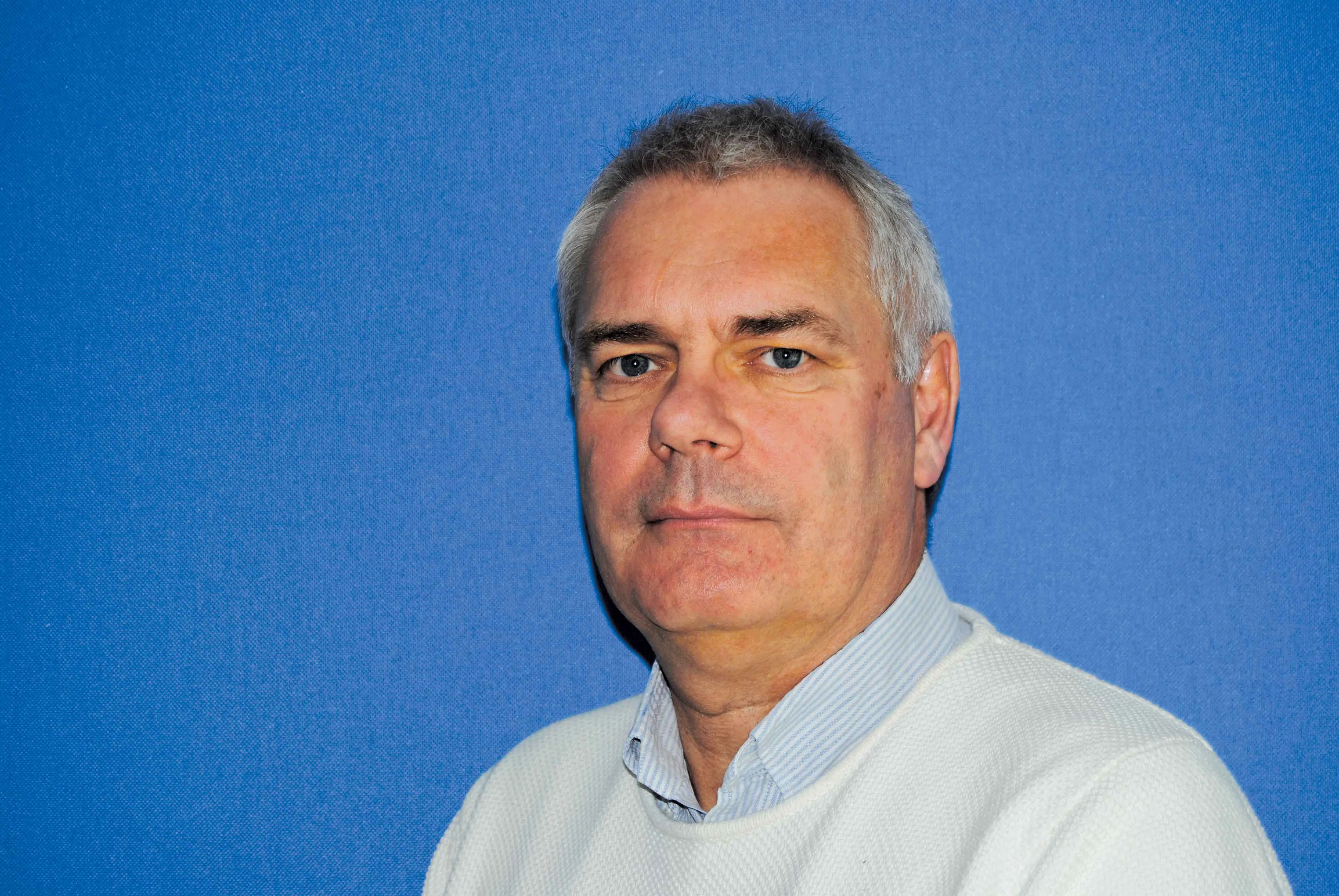Rohit Baluja is a man with a mission, and that is to help reduce the grim accident toll on India's roads, the worst in the world. Baluja, a shoemaker by trade, has been studying for a PhD in civil engineering, and this has involved regular trips to Birmingham, UK, to complete his doctorate.
All this seems far removed from 18 years ago when in December 1991, using much of his own money, he founded the Institute of Road Traffic Education (IRTE), the only organisation in India that conducts accident investiga
February 27, 2012
Read time: 4 mins

Rohit Baluja is a man with a mission, and that is to help reduce the grim accident toll on India's roads, the worst in the world. Baluja, a shoemaker by trade, has been studying for a PhD in civil engineering, and this has involved regular trips to Birmingham, UK, to complete his doctorate.
All this seems far removed from 18 years ago when in December 1991, using much of his own money, he founded the Institute of Road Traffic Education (3228 IRTE), the only organisation in India that conducts accident investigation and reconstruction.
Since then, Baluja, the IRTE president, and his colleagues have done an incredible amount of work to improve road safety in India, but by his own admission there is a lot still to do.
"What we are doing is developing systems and tools of training and enforcement for the government. We are training police in traffic management courses across the country and developing training programmes for engineers, school teachers, and accident investigation, and in driving we are training those who train people to drive," says Baluja, who feels the government could do more on road safety.
Despite fighting against many odds that include financial challenges and absolute resistance to change from various quarters, IRTE is marching ahead with successful innovations in road safety management because of our selfless commitment and support of friends and partners who have continuously inspired us."
Among IRTE's key projects have been the introduction of Interceptors, a state-of-the-art traffic enforcement technology developed by IRTE; CrashLab (IRTE was the first to launch a mobile crash investigation lab); School Conclave (road safety education through existing curriculum subjects), and Highway Road Safety Literacy Programmes (a pioneering proposal for imparting road safety education to villages situated on highways).
Another scheme, catalysed and organised by the IRTE, is the Student Traffic Volunteers Scholarship Scheme, a partnership between the social corporate citizen, the Traffic Police and the students, while with CAARS (Center for Analysis & Research in Road Safety), IRTE became the first non-governmental organisation in India to develop an analysis and research centre.
Journey Risk Management (JRM) is another dimension to the research-based programmes initiated by the IRTE towards making journeys by road more informative, convenient and safer.
The new facility will, when completed, have nine classrooms for up to 270 students; an academic block; simulator laboratory for driver training and testing; accident investigation lab; centre for analysis and research in road safety; road safety education centre; legal and enforcement cell; IT centre and a computer lab.
Baluja has agreed to help the development of the College of Traffic Management by building it on land belonging to him, and has also agreed to build a part of the basic structure which can be further developed and equipped constructed by the IRTE. But funding is still needed.
The Government of the State of Haryana has agreed that the 40km of the National Highway 1, which passes close to the college, can be used as a laboratory by the college to help police, civil and traffic engineers, transport department personnel and road safety managers to practically carry out their tasks. The laboratory will also become a training place for highway managers across the developing world.
It is claimed that the College of Traffic Management will be the first institute in the world which will provide comprehensive training and research in all areas of traffic management under one umbrella.
"The project construction is planned in phases depending on financial support available to us. A lump sum donation/partnership would enable us to complete the construction faster and carry out our planned activities to become a self-sustaining institution.
"As a donor/partner in this huge development project aimed at saving hundreds of thousands of lives, we would be pleased to offer donor benefits and these include naming any of the centres as desired by the donor; access to data generated by the college, and special complimentary courses for students nominated by the donor," said Baluja.
Baluja pointed out that research is not limited to the Indian experience. Capacity building for the college needs global participation and support. With the seed capital to create necessary infrastructure in addition to investments towards a foreign faculty for the first 18 months, the college will become self sufficient within three years.
All this seems far removed from 18 years ago when in December 1991, using much of his own money, he founded the Institute of Road Traffic Education (
Since then, Baluja, the IRTE president, and his colleagues have done an incredible amount of work to improve road safety in India, but by his own admission there is a lot still to do.
"What we are doing is developing systems and tools of training and enforcement for the government. We are training police in traffic management courses across the country and developing training programmes for engineers, school teachers, and accident investigation, and in driving we are training those who train people to drive," says Baluja, who feels the government could do more on road safety.
Despite fighting against many odds that include financial challenges and absolute resistance to change from various quarters, IRTE is marching ahead with successful innovations in road safety management because of our selfless commitment and support of friends and partners who have continuously inspired us."
Among IRTE's key projects have been the introduction of Interceptors, a state-of-the-art traffic enforcement technology developed by IRTE; CrashLab (IRTE was the first to launch a mobile crash investigation lab); School Conclave (road safety education through existing curriculum subjects), and Highway Road Safety Literacy Programmes (a pioneering proposal for imparting road safety education to villages situated on highways).
Another scheme, catalysed and organised by the IRTE, is the Student Traffic Volunteers Scholarship Scheme, a partnership between the social corporate citizen, the Traffic Police and the students, while with CAARS (Center for Analysis & Research in Road Safety), IRTE became the first non-governmental organisation in India to develop an analysis and research centre.
Journey Risk Management (JRM) is another dimension to the research-based programmes initiated by the IRTE towards making journeys by road more informative, convenient and safer.
Traffic management college
Now, Baluja, who is known internationally for his work, is overseeing the development of a College of Traffic Management in New Delhi to replace IRTE's small three-shed infrastructure in the industrial area of Delhi, which has just classrooms, a small analysis centre, a canteen and faculty area, measuring 180m³ and housing over 30 staff members.The new facility will, when completed, have nine classrooms for up to 270 students; an academic block; simulator laboratory for driver training and testing; accident investigation lab; centre for analysis and research in road safety; road safety education centre; legal and enforcement cell; IT centre and a computer lab.
Baluja has agreed to help the development of the College of Traffic Management by building it on land belonging to him, and has also agreed to build a part of the basic structure which can be further developed and equipped constructed by the IRTE. But funding is still needed.
The Government of the State of Haryana has agreed that the 40km of the National Highway 1, which passes close to the college, can be used as a laboratory by the college to help police, civil and traffic engineers, transport department personnel and road safety managers to practically carry out their tasks. The laboratory will also become a training place for highway managers across the developing world.
It is claimed that the College of Traffic Management will be the first institute in the world which will provide comprehensive training and research in all areas of traffic management under one umbrella.
"The project construction is planned in phases depending on financial support available to us. A lump sum donation/partnership would enable us to complete the construction faster and carry out our planned activities to become a self-sustaining institution.
"As a donor/partner in this huge development project aimed at saving hundreds of thousands of lives, we would be pleased to offer donor benefits and these include naming any of the centres as desired by the donor; access to data generated by the college, and special complimentary courses for students nominated by the donor," said Baluja.
Baluja pointed out that research is not limited to the Indian experience. Capacity building for the college needs global participation and support. With the seed capital to create necessary infrastructure in addition to investments towards a foreign faculty for the first 18 months, the college will become self sufficient within three years.








